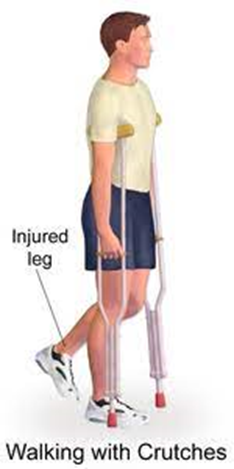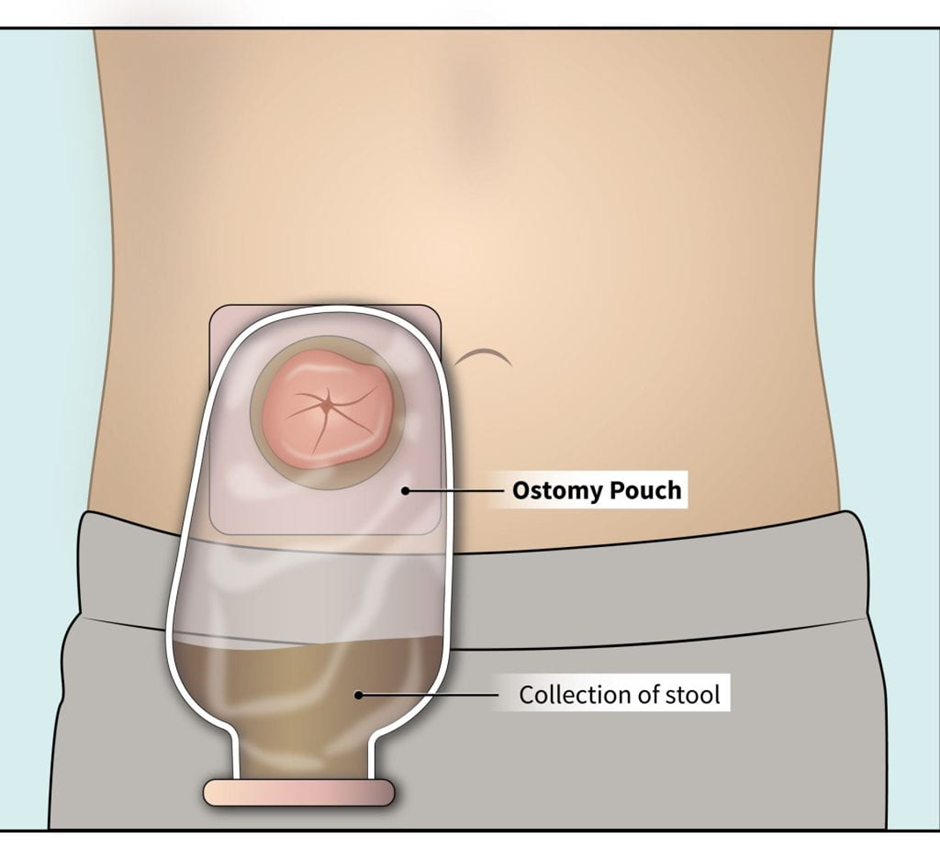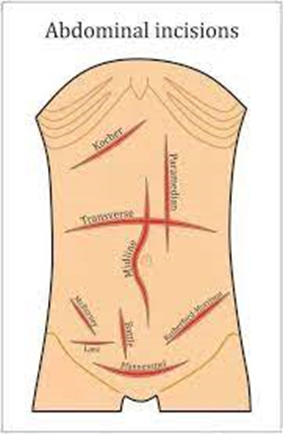A nurse is reinforcing discharge instructions with a client who is walking with crutches. Which of the following statements by the client indicates an understanding of the instructions?
"I should advance my crutches up the step ahead of my unaffected leg."
"I should keep my elbows straight when I am walking with my crutches."
"I will support my weight on the hand grips of the crutches."
"When I'm walking around my house with my crutches, it's okay to take my shoes off."
The Correct Answer is A
Choice A Reason:
"I should advance my crutches up the step ahead of my unaffected leg." This statement demonstrates correct technique for ascending stairs with crutches. When going up stairs, the client should advance the crutches onto the step first, followed by the unaffected leg.
Choice B Reason:
"I should keep my elbows straight when I am walking with my crutches." The client should maintain a slight bend in the elbows while walking with crutches to provide stability and support.
Choice C Reason:
"I will support my weight on the hand grips of the crutches." The client should not support their weight on the hand grips alone; weight should be distributed through the hands and arms to avoid putting excessive pressure on the axillae.
Choice D Reason:
"When I'm walking around my house with my crutches, it's okay to take my shoes off." It is generally not advisable to walk with crutches without shoes, as wearing shoes provides better support and stability. The client should wear supportive, non-skid footwear while using crutches.

Nursing Test Bank
Naxlex Comprehensive Predictor Exams
Related Questions
Correct Answer is A
Explanation
Choice A Reason:
Pressing on the skin barrier for about 30 seconds ensures that it adheres properly to the skin, which helps secure the ostomy appliance and prevents leakage.
Choice B Reason:
Moisturizing soap is not recommended for cleaning around the stoma, as it can leave a residue that interferes with the appliance's adhesion. Mild soap without moisturizers or just water should be used.
Choice C Reason:
Applying talc powder around the stoma can prevent the appliance from adhering properly, leading to leakage. It is not recommended for ostomy care.
Choice D Reason:
The skin barrier should be cut to fit closely around the stoma, leaving no more than a 1/8 inch gap, not 1/2 inch. A larger opening may cause skin irritation or leakage.

Correct Answer is C
Explanation
Choice A Reason:
Pushing the skin down while gently removing the tape is incorrect. Pushing the skin while removing tape could cause unnecessary discomfort or trauma to the skin and the incision area. Gentle removal of tape without pulling the skin is recommended to avoid skin injury.
Choice B Reason:
Drying the incision with sterile gauze pads is incorrect. Generally, it's advisable not to dry the incision site with sterile gauze pads as this might cause trauma or disruption to the healing tissues. Patting the incision site dry or allowing it to air dry gently after cleansing is preferable.
Choice C Reason:
Lifting the soiled dressing so that the underside faces the client is correct. Lifting the soiled dressing in a manner that the underside faces the client helps prevent potential contamination of the wound by minimizing contact between the external surface of the dressing and the incision site. This technique reduces the risk of introducing pathogens into the wound during the dressing change.
Choice D Reason:
Cleaning around the drain site using horizontal strokes is incorrect. When cleaning around the drain site, it's typically recommended to use gentle and careful motions without specific emphasis on strokes, as this might cause friction or trauma to the area around the drain. Instead, using gentle circular motions or dabbing around the site is often advised for wound care.

Whether you are a student looking to ace your exams or a practicing nurse seeking to enhance your expertise , our nursing education contents will empower you with the confidence and competence to make a difference in the lives of patients and become a respected leader in the healthcare field.
Visit Naxlex, invest in your future and unlock endless possibilities with our unparalleled nursing education contents today
Report Wrong Answer on the Current Question
Do you disagree with the answer? If yes, what is your expected answer? Explain.
Kindly be descriptive with the issue you are facing.
